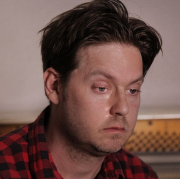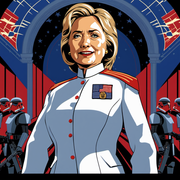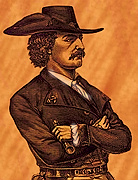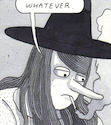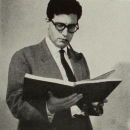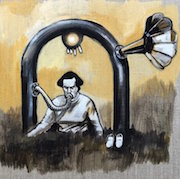|
mishimas on my shelf that i plan to read this year: runaway horses > temple of dawn > confessions of a mask > forbidden colors hope i don't turn into gay hitler and kill myself!
|
|
|
|

|
| # ? Apr 25, 2024 17:26 |
|
I read Comte de Lautreamont and became a satan. Haha just kidding!
|
|
|
|
his "fascism" was just a reaction against the environment he existed in, he became like that in tokyo university surrounded by disgusting, secretly misogynistic intellectuals who called themselves socialists, kind of like the character shunsuke in forbidden colors (tokyo university is still full of these guys by the way). mishima saw that platonic intellectualizing led to a kind of arrogance and detachment from reality, something which he also perceived in himself and which he hated about himself, i think he was essentially right to hate this. this is also why he hated dazai, a writer who was basically as self destructive and vaguely aristocratic as he himself was, but in a languishing, vain and passive sort of way
|
|
|
|
Shibawanko posted:i dont really get this kind of thing. like what are you afraid is going to happen if you read mishima's books? that it will make you become a fascist somehow? if you're a reader you shouldn't be so easily affected I'm not worried or scared. This was a good opportunity to talk about what to do with a given book with given ideas and look at all the posts that happened. I think we've had some interesting posting, even if y'all latched on to the most boring part. I'm still more interested in what happens in reading that exchanges ideas. How can words transfer so much meaning I can get even an imperfect grasp on someone like Mishima, their ideas and intimate internal goings on? What's going on in my mind when taking in a new idea? Probably beyond the purview here, but that's what I'm interested in.
|
|
|
|
Duck Rodgers posted:But political movements should absolutely attack and disavow artists with an opposing world view. they absolutely should not under any circumstance, actually
|
|
|
|
Modern day fascists don't read much anyway, they're too busy crafting elaborate personas to roleplay on Twitter.
|
|
|
|
I'm making Canto XLV the foundation of my whole worldview and there's nothing you can do to stop me
|
|
|
|
Duck Rodgers posted:But political movements should absolutely attack and disavow artists with an opposing world view. Mayakovsky had it coming
|
|
|
|
A lot of people seem to be thinking that I am suggesting you shouldn't read books you don't agree with. I said several times you should read whatever you want. I'm not suggesting to limit your reading. I read widely too. I have read fascists and racists and sexists, and I will continue to do so.ulvir posted:they absolutely should not under any circumstance, actually Why shouldn't they? If a fascist went on TV and said lovely things about immigrants or whatever else, there would be a public backlash and an attempt to make it so that fascist doesn't get to go on TV again. I would support this. Maybe you wouldn't? If that same fascist writes a novel I would expect that public backlash to continue. I'm not suggesting the author gets beheaded in the square or anything. But if they can express their views through art, then people with opposing views can express that they think the author is a piece of poo poo. Something I've been thinking about is literature as art vs. literature as a commodity. Art is a process of both creation and interpretation. Both processes happen in specific historical contexts, sometimes vastly different contexts. If we don't consider the author, the historical situation of the production of the art then we're limiting ourselves in trying to understand the words of the nerds. And similarly, if we don't consider the historical context in which we are interpreting the art, and in which society as a whole interprets art we are also limiting the things we can learn. If we only consider art in terms of aesthetics and free floating or universal ideas, are we not engaging with it as a commodity rather than as art? the artist is alienated from the work, the production process mystified, and we engage with the writing as an act of consumption rather than an act of interpretation. Shibawanko posted:his "fascism" was just a reaction against the environment he existed in, he became like that in tokyo university surrounded by disgusting, secretly misogynistic intellectuals who called themselves socialists, kind of like the character shunsuke in forbidden colors (tokyo university is still full of these guys by the way). mishima saw that platonic intellectualizing led to a kind of arrogance and detachment from reality, something which he also perceived in himself and which he hated about himself, i think he was essentially right to hate this. this is also why he hated dazai, a writer who was basically as self destructive and vaguely aristocratic as he himself was, but in a languishing, vain and passive sort of way I think this is more interesting than just saying death of the author I don't know anything about him
|
|
|
|
Duck Rodgers posted:Why shouldn't they? If a fascist went on TV and said lovely things about immigrants or whatever else, there would be a public backlash and an attempt to make it so that fascist doesn't get to go on TV again. I would support this. Maybe you wouldn't? If that same fascist writes a novel I would expect that public backlash to continue. I'm not suggesting the author gets beheaded in the square or anything. But if they can express their views through art, then people with opposing views can express that they think the author is a piece of poo poo. This is a completely different argument. Now you're defending the right of individuals to criticise politically incorrect art, whereas before you said 'political movements should absolutely attack and disavow artists with an opposing world view'. When political movements attack artists with an opposing world view, beheading in the public square is exactly what tends to happen, among other things. That's the whole point of political movements, trying to get and wield state power.
|
|
|
|
Duck Rodgers posted:Why shouldn't they? If a fascist went on TV and said lovely things about immigrants or whatever else, there would be a public backlash and an attempt to make it so that fascist doesn't get to go on TV again. I would support this. Maybe you wouldn't? If that same fascist writes a novel I would expect that public backlash to continue. I'm not suggesting the author gets beheaded in the square or anything. But if they can express their views through art, then people with opposing views can express that they think the author is a piece of poo poo. Duck Rodgers posted:Something I've been thinking about is literature as art vs. literature as a commodity. Art is a process of both creation and interpretation. Both processes happen in specific historical contexts, sometimes vastly different contexts. If we don't consider the author, the historical situation of the production of the art then we're limiting ourselves in trying to understand the words of the nerds. And similarly, if we don't consider the historical context in which we are interpreting the art, and in which society as a whole interprets art we are also limiting the things we can learn. If we only consider art in terms of aesthetics and free floating or universal ideas, are we not engaging with it as a commodity rather than as art? the artist is alienated from the work, the production process mystified, and we engage with the writing as an act of consumption rather than an act of interpretation.
|
|
|
|
Eugene V. Dubstep posted:This is a completely different argument. Now you're defending the right of individuals to criticise politically incorrect art, whereas before you said 'political movements should absolutely attack and disavow artists with an opposing world view'. When political movements attack artists with an opposing world view, beheading in the public square is exactly what tends to happen, among other things. That's the whole point of political movements, trying to get and wield state power. I'm not defending the rights of individuals to criticize art, although I'm certainly on board with that. I am talking about political movements, and I think reducing political movements to an apparatus or desire for state power is reductive. It is probably true that most political movements would like to get and wield state power, but it is definitely true that most political movements do not have access to state power, and that many political movements arise in the defense of certain groups from state power and those who wield it. There is a qualitative difference between groups who hold state power, the cultural hegemonic etc, and those groups who are oppressed by that power. It is not fair to imply that the same strategy used by both groups is equally bad, or equally good. Violence used by oppressed groups in defense or response to oppression is not qualitatively the same as violence used by the hegemonic power, whether the state or otherwise, in pursuit of maintaining power through continued oppression. e: quote:Nobody's saying that. The people you're arguing with are considering the hell out of Mishima and how he got his worldview and how it informs his work. The point we're making is that a book is not the person who wrote it, which is self-evident. I'm not trying to imply that anyone in this thread is engaging with books wrong. My argument is not meant to be directed at anyone in this thread. I also agree that the book is not the person who wrote it. Maybe I'm tilting at windmills. I do think that art as commodity is an interesting topic though. We are all so ensconced in the capitalist cultural hegemony that it seems impossible that the creation and interpretation of art is not a commodity production and consumption process, at least in part. Even by individuals who are aware of that context and are trying to break out of it. Duck Rodgers fucked around with this message at 16:57 on Feb 20, 2021 |
|
|
|
Seems weird to view Politics and Art through the lens of whatever the local partisan organizations are and the issues du jour.
|
|
|
|
Duck Rodgers posted:I'm not defending the rights of individuals to criticize art, although I'm certainly on board with that. I am talking about political movements, and I think reducing political movements to an apparatus or desire for state power is reductive. It is probably true that most political movements would like to get and wield state power, but it is definitely true that most political movements do not have access to state power, and that many political movements arise in the defense of certain groups from state power and those who wield it. There is a qualitative difference between groups who hold state power, the cultural hegemonic etc, and those groups who are oppressed by that power. It is not fair to imply that the same strategy used by both groups is equally bad, or equally good. Violence used by oppressed groups in defense or response to oppression is not qualitatively the same as violence used by the hegemonic power, whether the state or otherwise, in pursuit of maintaining power through continued oppression. If I'm being generous, you're saying a lot of true statements here but none of them support the point that 'political movements should attack and disavow artists with an opposing world view'. Alternatively, I could take your defense of political violence by oppressed groups to be implicitly justifying violence against artists whose works are interpreted as being oppressive or otherwise reinforcing the cultural hegemony of oppressors. You pick. e: not that I would weep if the entire cast of SNL were hauled in front of a firing squad, I just have this latent liberal concern for decorum Eugene V. Dubstep fucked around with this message at 17:13 on Feb 20, 2021 |
|
|
|
Duck Rodgers posted:I do think that art as commodity is an interesting topic though. We are all so ensconced in the capitalist cultural hegemony that it seems impossible that the creation and interpretation of art is not a commodity production and consumption process, at least in part. Even by individuals who are aware of that context and are trying to break out of it. Can someone define "consumption" for me. Either the person I'm quoting or someone (many ones) else. It feels like it has a political usage I'm not sure of, or there's an implied end to consuming something where nothing comes of consumption (if I'm taking a stab at it.)
|
|
|
|
I believe the modern name is tuberculosis.
|
|
|
|
Mrenda posted:Can someone define "consumption" for me. Either the person I'm quoting or someone (many ones) else. It feels like it has a political usage I'm not sure of, or there's an implied end to consuming something where nothing comes of consumption (if I'm taking a stab at it.) Yeah, don't overthink it, you have it right. 'Consuming' art is bad in the sense that it treats art as if it has a definite use-value, i.e. as if it is a commodity that provides x hours of entertainment, say, or y amount of education. No one consumes a novel the same way they consume a gallon of gasoline to drive 30 miles, but often when talking about art's merits people will default to that kind of criticism/justification also: Sham bam bamina! posted:I believe the modern name is tuberculosis.
|
|
|
|
Sham bam bamina! posted:I believe the modern name is tuberculosis. And language is a pox. Eugene V. Dubstep posted:Yeah, don't overthink it, you have it right. 'Consuming' art is bad in the sense that it treats art as if it has a definite use-value, i.e. as if it is a commodity that provides x hours of entertainment, say, or y amount of education. No one consumes a novel the same way they consume a gallon of gasoline to drive 30 miles, but often when talking about art's merits people will default to that kind of criticism/justification I was thinking that consumption is bad because it provides no use. But you're saying "definite use-value." My contention was that consuming anything necessarily involves a change by the thing doing the consuming. If I'm reading you correctly it's limiting that change to specific, immediate values that's that problem instead of allowing for or imagining the consumption can and does provide a "bigger," un-foreseeable energy.
|
|
|
|
Just to change the subject a bit but I need some books by LGBT people for the forum book challenge if anyone can help us out.
|
|
|
|
Eugene V. Dubstep posted:If I'm being generous, you're saying a lot of true statements here but none of them support the point that 'political movements should attack and disavow artists with an opposing world view'. Alternatively, I could take your defense of political violence by oppressed groups to be implicitly justifying violence against artists whose works are interpreted as being oppressive or otherwise reinforcing the cultural hegemony of oppressors. You pick. You're right I shouldn't have paired my point with an example of political violence. I also am not intending the idea of a physical attack in using that word, if that's how you're interpreting. So think about indigenous activists coming to a book launch to shout down the authour and hand out pamphlets about why he's racist and what colonialism is. I think this is acceptable and supportable. The RCMP doing the same thing is not. I do disagree with your statement that confrontation, disavowal, or (non-physical) attack necessarily leads to state backed violence. In part because most political movements will never have access to state power, and because I don't agree that argument, confrontation, whatever necessarily escalates to violence. Mrenda posted:Can someone define "consumption" for me. Either the person I'm quoting or someone (many ones) else. It feels like it has a political usage I'm not sure of, or there's an implied end to consuming something where nothing comes of consumption (if I'm taking a stab at it.) Yeah I am using it in the sense of capitalist consumption. To engage with the world through the consumption of commodities, rather than through other potential avenues of engagement. Commodification is a process where capitalism extends its reach into our lives, either extensively or intensively. For example, grain becomes a commodity which is sold to people so they can make bread rather than growing it themselves. Then mass produced bread, restaurants, instant meals, bread making machines etc. All these take the act of making food and turn it into a series of commodities. But the act of making and eating food is more than just a series of commodities to be consumed (in the capitalist sense). It also has social and cultural values, brings families together etc. Generally the act of commodification also mystifies the process of production. Who grew the wheat, baked the bread, made the machines etc. When I am using consumption, I am talking about engaging with art as a commodity, rather than engaging with it in other ways that it might be engaged with. Again, I am not accusing anyone in this thread of treating art as a commodity to be consumed. But we all live in a world in which commodity production and consumption is the primary organizing fact of life, it is impossible that we are not treating art as a commodity in some respects. And it seems clear that contemporary art is largely organized around the logic of commodity production and consumption. That logic determines (in a sense of setting limits) what art is produced, and crowds out other forms of engagements with art (or whatever other sphere of life is being commodified). Whether that is a bad thing probably depends on your view of capitalism.
|
|
|
|
Duck Rodgers posted:Why shouldn't they? If a fascist went on TV and said lovely things about immigrants or whatever else, there would be a public backlash and an attempt to make it so that fascist doesn't get to go on TV again. I would support this. Maybe you wouldn't? If that same fascist writes a novel I would expect that public backlash to continue. I'm not suggesting the author gets beheaded in the square or anything. But if they can express their views through art, then people with opposing views can express that they think the author is a piece of poo poo. pushing back against someone’s opinions is a different thing entirely than political movements “attacking artists with an opposing worldview”. give the latter the power of a state and what you’ll inevitably end up with is the bonfire of the vanities, German book burnings and Liu Xiaobo’s imprisonment, to name a few examples.
|
|
|
|
Idaholy Roller posted:Just to change the subject a bit but I need some books by LGBT people for the forum book challenge if anyone can help us out. well thread-pet Yukio Mishima was gay, there’s also James Baldwin, Anne Garréta and Marcel Proust
|
|
|
|
ulvir posted:pushing back against someone’s opinions is a different thing entirely than political movements “attacking artists with an opposing worldview”. give the latter the power of a state and what you’ll inevitably end up with is the bonfire of the vanities, German book burnings and Liu Xiaobo’s imprisonment, to name a few examples. But the latter don't have the power of the state in the vast majority of cases, and in most cases never will. Politics is a collective activity. Reducing it to individual criticism is disempowering to those who are already disempowered. E: also I just have to say again that the idea that oppositional/confrontational political action by oppressed groups will necessarily lead to political violence is a bad assumption and kind of a lovely position. Political groups are qualitatively different. The things that a facsist political group would do in power are different than the things an indigenous political group would do. And saying they would all resort to political violence is extremely reductive. And yes indigenous groups regularly condemn racist and colonialist artists Duck Rodgers fucked around with this message at 22:30 on Feb 20, 2021 |
|
|
|
kind of hosed up u guys are trying to stop people reading a queer person of colour behaviour like this is why they killed them self
|
|
|
|
snailshell posted:I don't think it's untrue that you're "keeping company" with an author when you read their works, although certainly not in the way you would be if you had dinner with them or had a written correspondence. You're in the company of their ideas and the products of their mind. You're having an aesthetic reaction to the words placed on the page by them. That's not inherently endorsement, but it's also not nothing - it's a relationship! You're "keeping company" with the text, not the author. You don't form your understanding of the text from the author's ideas. You form your understanding of the author's ideas from the text. The "author" you relate to in this process is an implied author, another textual construct like the narrator. There's a whole book about this by Wayne Booth. It's called, appropriately enough, The Company We Keep.
|
|
|
|
Duck Rodgers posted:But the latter don't have the power of the state in the vast majority of cases, and in most cases never will. Politics is a collective activity. Reducing it to individual criticism is disempowering to those who are already disempowered. Okay, then here's my problem. If a given political movement is powerless, then its members have much better things to do than confront the author of a degenerate poem. At best it achieves nothing, at worst it generates free press for the target and alienates normies. If, on the other hand, a political movement has significant power, then 'attacking and disavowing' politically unreliable artists necessarily entails censorship at minimum, and the more power the movement has, the more severe the sanctions it can impose on its enemies. In the deep abstract, yeah, maybe there would be some benefits to benevolent oversight of a nation's artistic production; what actually happens is that every such political regime empowers the stupidest partisan bigots on the planet to destroy the lives of artists for arbitrary reasons. It happened in the whole Eastern Bloc, it happened under the Nazis, it happened in Ireland and US in the 30s-60s, and so on.
|
|
|
|
See Tipper Gore for a recent example. Or the MPAA for current egregious, draconian and arbitrary art censorship. Or YouTube and Facebook algorithms.
|
|
|
Eugene V. Dubstep posted:Okay, then here's my problem. If a given political movement is powerless, then its members have much better things to do than confront the author of a degenerate poem. At best it achieves nothing, at worst it generates free press for the target and alienates normies. There's always the paradox of tolerance issue. A better example for discussion is probably something like The Turner Diaries, which directly inspired the Oklahoma City bombings. Or a more borderline example might be this thread I had to gas recently because the poster was going on a cross-forum racistposting spree and even with a book that might be interesting in the abstract, in the particular you run into the Dave Chappelle problem: quote:The catalyst for his leaving was an uncomfortable feeling he felt while filming sketches that involved several racist "pixie" characters (via Time). At one taping, a white man watched and laughed louder and longer than Chapelle wanted. "When he laughed, it made me uncomfortable," Chappelle told Time in 2005. "As a matter of fact, that was the last thing I shot before I told myself I gotta take f****** time out after this. Because my head almost exploded. Ideally you handle this divide with 1) public shaming and 2) ivory tower elitism -- e.g., we can all discuss Lolita like adults because we value discussing intelligent literature intelligently and because anyone who came in here trying to perv about it would get swiftly denounced and ejected. The problem with that approach is that the democratization of the internet has rendered it impossible. Anyone who wants can find a copy of anything anywhere and then five clicks later find a community that's encouraging the worst possible discussion or even re-enactment of whatever horrible work you can think of. Hieronymous Alloy fucked around with this message at 12:52 on Feb 21, 2021 |
|
|
|
|
Eugene V. Dubstep posted:Okay, then here's my problem. If a given political movement is powerless, then its members have much better things to do than confront the author of a degenerate poem. At best it achieves nothing, at worst it generates free press for the target and alienates normies. I think there's quite a gulf between powerless and enough access to state power to make use of state violence. Plus most political movements representing oppressed groups only have any power because they are mass movements made up of large numbers of people. Many of these people could be artists or people who enjoy art, and may focus their political activity around art. Whether this is a good strategy or not is a different debate than whether or not it happens, and is acceptable or supportable. And again, I think that the acceptability of a tactic depends on who's doing it. Fascists coming in to a book launch to heckle is bad. State backed police or military coming into a book launch to heckle is bad. Anti-racists coming into a book launch is probably good. If those anti-racists somehow gained access to state power and then began using that state power to shut down book launches, well that would be bad. (obvious caveats for preventing hate speech). Hieronymous Alloy posted:Ideally you handle this divide with 1) public shaming and 2) ivory tower elitism -- e.g., we can all discuss Lolita like adults because we value discussing intelligent literature intelligently and because anyone who came in here trying to perv about it would get swiftly denounced and ejected. Discussing intelligent literature intelligently is great and I appreciate this thread because it tends to do it. Talking about our individual reactions to and interpretations of good books is good fun. But I also think it's useful (and also potentially fun) to look at other collective interpretations of a book. Does the way a book is interpreted by large numbers of people reveal anything about the socio-economic context that people are interpreting the book in? How is that related to the socio-economic context that the book was created in? How does it relate to other collective and individual interpretations? And should or could anything be done to pushback against or (non-physically) attack interpretations that are considered politically untenable? Does a 'solution' go as far as denouncing a book and trying to prevent people from reading it? I think that is an equally valid way of interacting with art as discussing the aesthetics, linguistics etc, and our own personal experience with it, and one can inform the other. As you say this thread already does it on a small scale. I'm sure that if someone came in here and wanted to talk about Mishima and it was clear that the reason they liked Mishima was because of the fascism, that person would get run out. I think it would be interesting to have a discussion about how fascists (maybe Japanese fascists specifically) currently interpret Mishima, if at all. Is he relevant to modern fascist movements, which we all know are on the rise? Or is he a forgotten relic only relevant to literature nerds? Maybe this discussion has already happened in the thread and I just missed it. Maybe I should take my own cue and do it myself but it would take a while because I would have to read Mishima (which I understand from this thread would be enjoyable) and also probably about modern (Japanese) fascism.
|
|
|
|
Modern Japan is hosed up as in, the ruling party recently allowed women in meetings, but they aren’t allowed to speak. That being said, whether you want to read about modern Japanese fascism for your own sake, go ahead. But I would warmly recommend that you read Mishima because he’s just that good. His primary concern seems to be aestethics IMO, and I don’t really ever get fashy vibes from his works, although I haven’t read the one with the right wing coup plot so can’t vouch for that one.
|
|
|
|
Idaholy Roller posted:Just to change the subject a bit but I need some books by LGBT people for the forum book challenge if anyone can help us out. Henry James is cool. Virginia Woolf also rules.
|
|
|
|
Genet
|
|
|
|
Idaholy Roller posted:Just to change the subject a bit but I need some books by LGBT people for the forum book challenge if anyone can help us out. seconding anne garréta and nthing james baldwin. check out tove jansson (the summer book, fair play, the true deceiver), especially if you already like the moomins. there's also the gallery by john horne burns, which is somewhere between a novel and a collection of short stories about american troops, mostly gay, in occupied naples. includes a very memorable story about a gay bar with (among others) two british sergeants in drag musing about camp
|
|
|
|
Read claude mckay's romance in marseille recently, worth checking out. As is Djuna barnes' nightwood. Both of which are early depictions of explicitly homosexual relationships. Also EM Forster's Maurice though that wasn't published til after his death. I'd also count shakespeare's sonnets as lgbt literature
|
|
|
|
Idaholy Roller posted:Just to change the subject a bit but I need some books by LGBT people for the forum book challenge if anyone can help us out. One of Patricia Highsmith's The Talented Mr. Ripley novels, or The Price of Salt (adapted into the movie Carol) Nthing Virginia Woolf, try Orlando.
|
|
|
|
Thanks for the Wayne Booth rec, PeterWeller. It'll be interesting to see its relationship with Sontag's Against Interpretation, which I was way into at the same time as my Saint Sebastian fixation.Idaholy Roller posted:books by LGBT people Weirdly, most of the books on my to-read list that deal with LGBT topics are nonfiction--memoirs and essay compilations and things.
|
|
|
|
Thanks a bunch @ everyone
|
|
|
|
I've never read Larry Kramer but I hear good things.
|
|
|
|
snailshell posted:Thanks for the Wayne Booth rec, PeterWeller. It'll be interesting to see its relationship with Sontag's Against Interpretation, which I was way into at the same time as my Saint Sebastian fixation. You're welcome. As a bonus, you'll also get the original definition of the unreliable narrator from the guy who invented the concept. I've only read the title essay, but I suspect Booth would agree with Sontag about the false division between form and content and probably little else. quote:Alison Bechdel has two famous comic memoirs that reference classic literature and psychoanalysis to deal with her parental relationships. Truman Capote's Other Voices, Other Rooms is beautiful. Anything by Virginia Woolf. Alexander Chee. Willa Cather, believe it or not (I love My Ántonia). I've heard a lot of buzz about Real Life by Brandon Taylor. Jeanette Winterson, if you like that sort of thing. And another all-time classic, Rita Mae Brown's Rubyfruit Jungle! I've only recently discovered Cather was gay. Her Death Comes for the Archbishop is an all-time favorite of mine and a text I try to work into as many reading lists as I can. I learned she was gay from her being included in a list of lesbian writers and thinkers in the story "Mothers" from Carmen Maria Machado's Her Body and Other Parties. That's all to say your recommendation of Cather reminded me that I should recommend Machado. Her second book, In the Dream House, is sort of CNF memoir about an abusive relationship and meeting her wife through the lenses of different genres.
|
|
|
|

|
| # ? Apr 25, 2024 17:26 |
|
Read James Baldwin, yes. But also read his essays. Read, the first chapter of Notes of a Native Son for a nice takedown of sentimental literature and "protest novels" re: Uncle Tom's Cabin, which any realist a hundred years prior would have appreciated. It might also inflict you with a sense of how little anything has changed in American storytelling about our racism problem, especially in the popular sphere. See the Help, Green Book, Driving Miss Daisy, etc.
|
|
|



